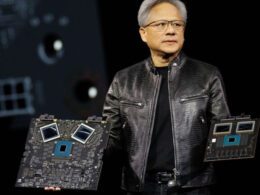Restrictions on the Export of Advanced Semiconductors to China
The US authorities are contemplating imposing additional restrictions on China’s access to advanced semiconductor technologies, integral to the development of Artificial Intelligence (AI) chips. The US fears these AI chips may be exploited by the Chinese military.
Gate All-Around (GAA) Chip Technology
The authorities envisage the cessation of exports to China of chips made using gate all-around (GAA) technology. This innovative microchip architecture enables the production of more performant processors for high-tech computations, including those in the realm of AI.
As reported by Bloomberg, the restrictions will affect not only the ready-made GAA chips but also the technologies used for their production ― equipment and software. The US aims to limit, to the highest degree possible, China’s access to computational power required for developing its AI systems.
Impact on Technological Giants and Pending Decision
However, a decision has yet to be reached and US officials are determining the optimal scope of restrictions. Nevertheless, it is intended that the final rules will be approved ahead of the presidential election in November. The export bans will impact the interests of big-hitting tech companies like Nvidia, Intel, AMD as well as chip manufacturers such as TSMC and Samsung.
In-progress prohibitions on China’s imports of advanced semiconductors and production equipment are in place, but US authorities plan to tighten controls further to prevent the use of AI technologies by the Chinese military. However, it remains a challenge to strike a balance between business interests and national security considerations.
New regulations are under active discussion with tech companies and industry experts. The first draft was criticized for being too “broad,” and businesses insist that the restrictions should only apply to GAA chip production technologies, without affecting the export of finished products to China.
High Bandwidth Memory Chips
Some sources also reveal discussions regarding limiting the export of high-bandwidth memory chips. These semiconductors, produced by SK Hynix and Micron, play a pivotal role in accelerating data access for AI systems. This sustains the high speed of AI accelerators during the training of neural network models requiring intensive handling of large volumes of data.





